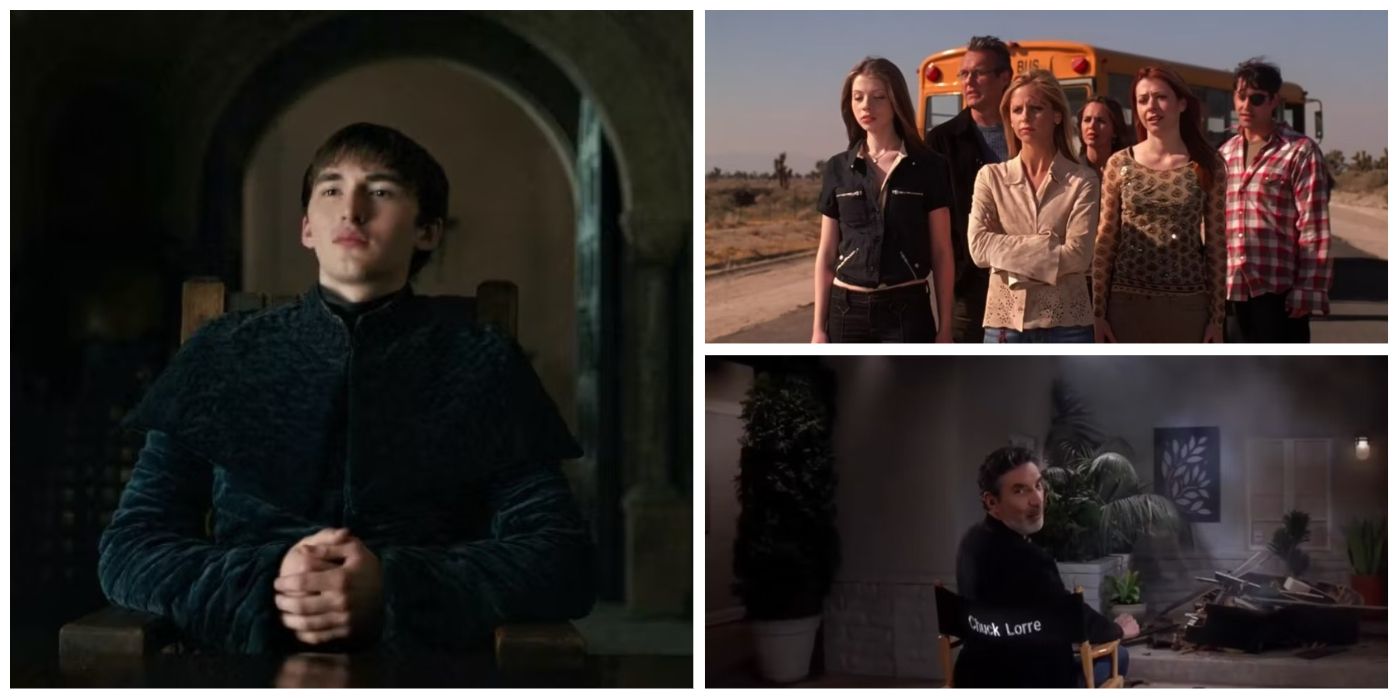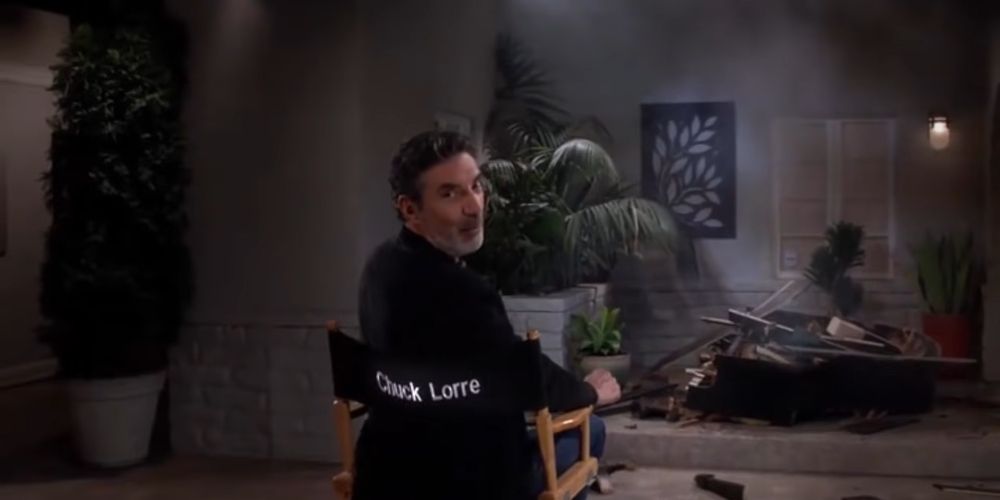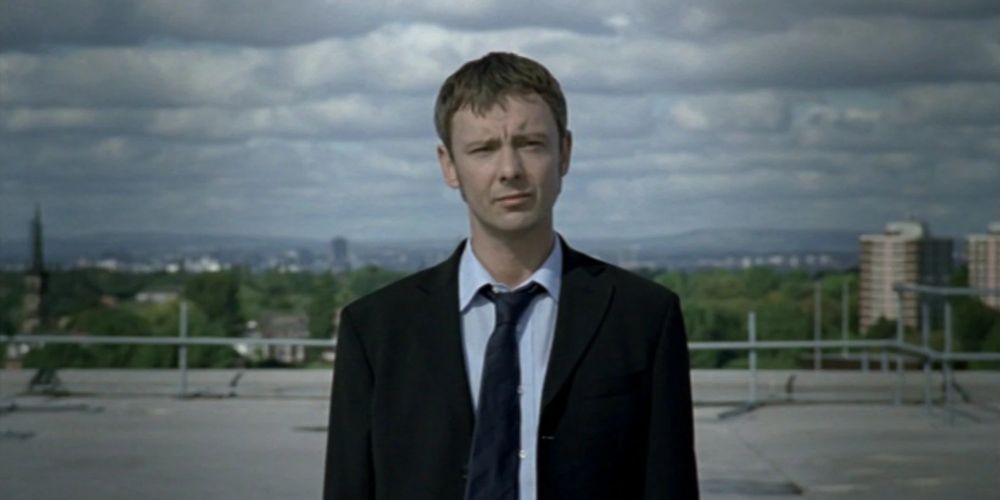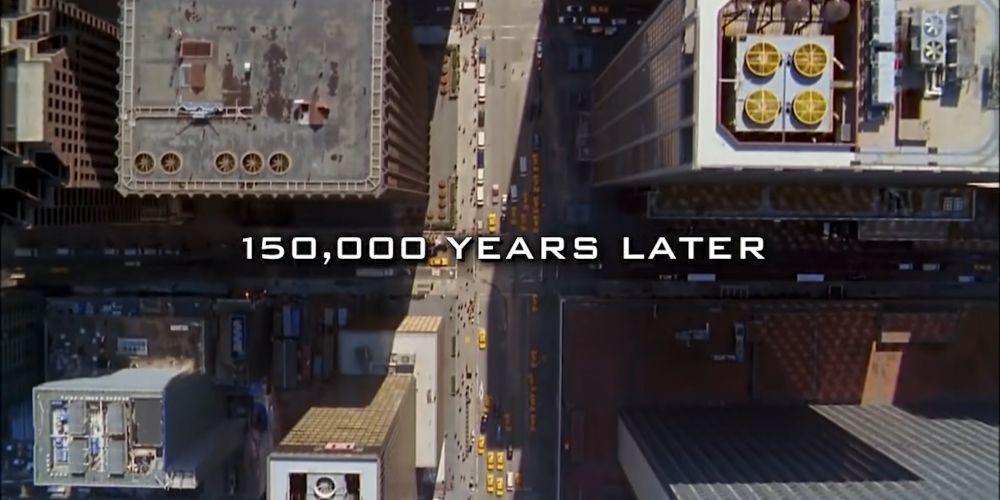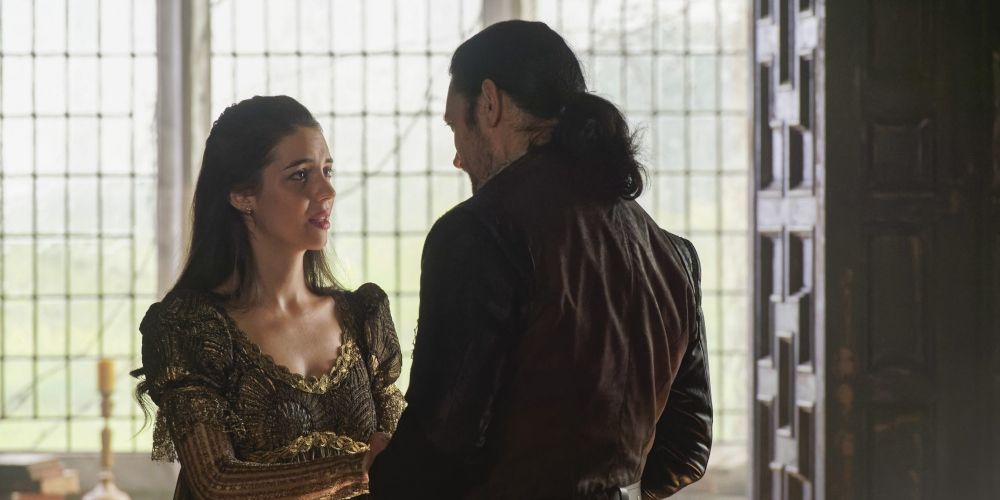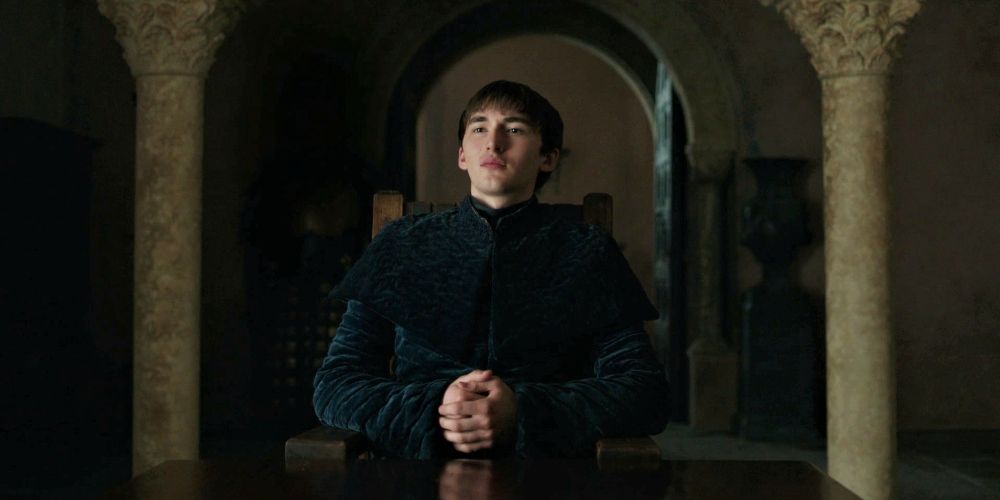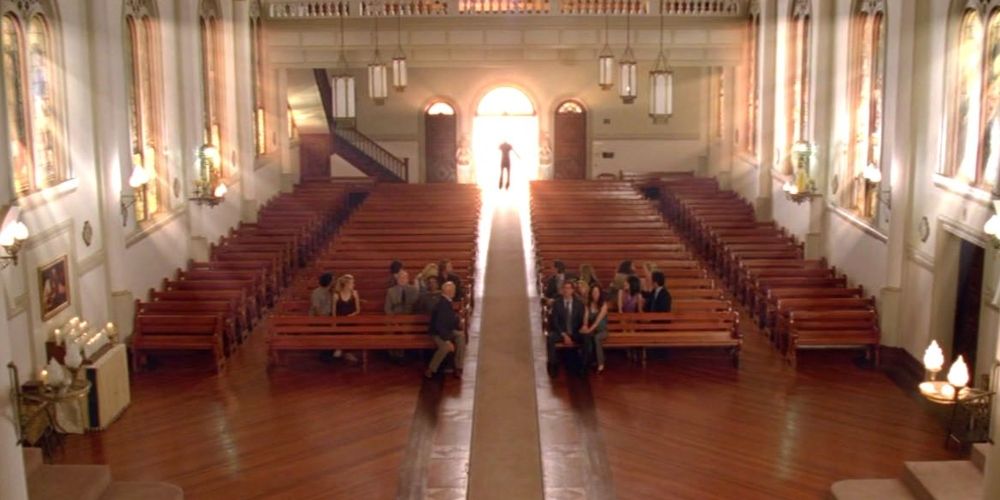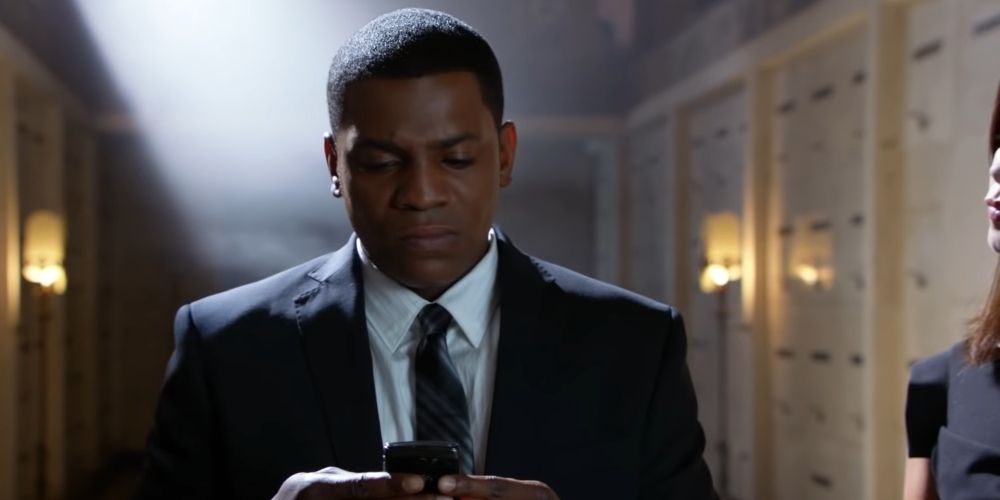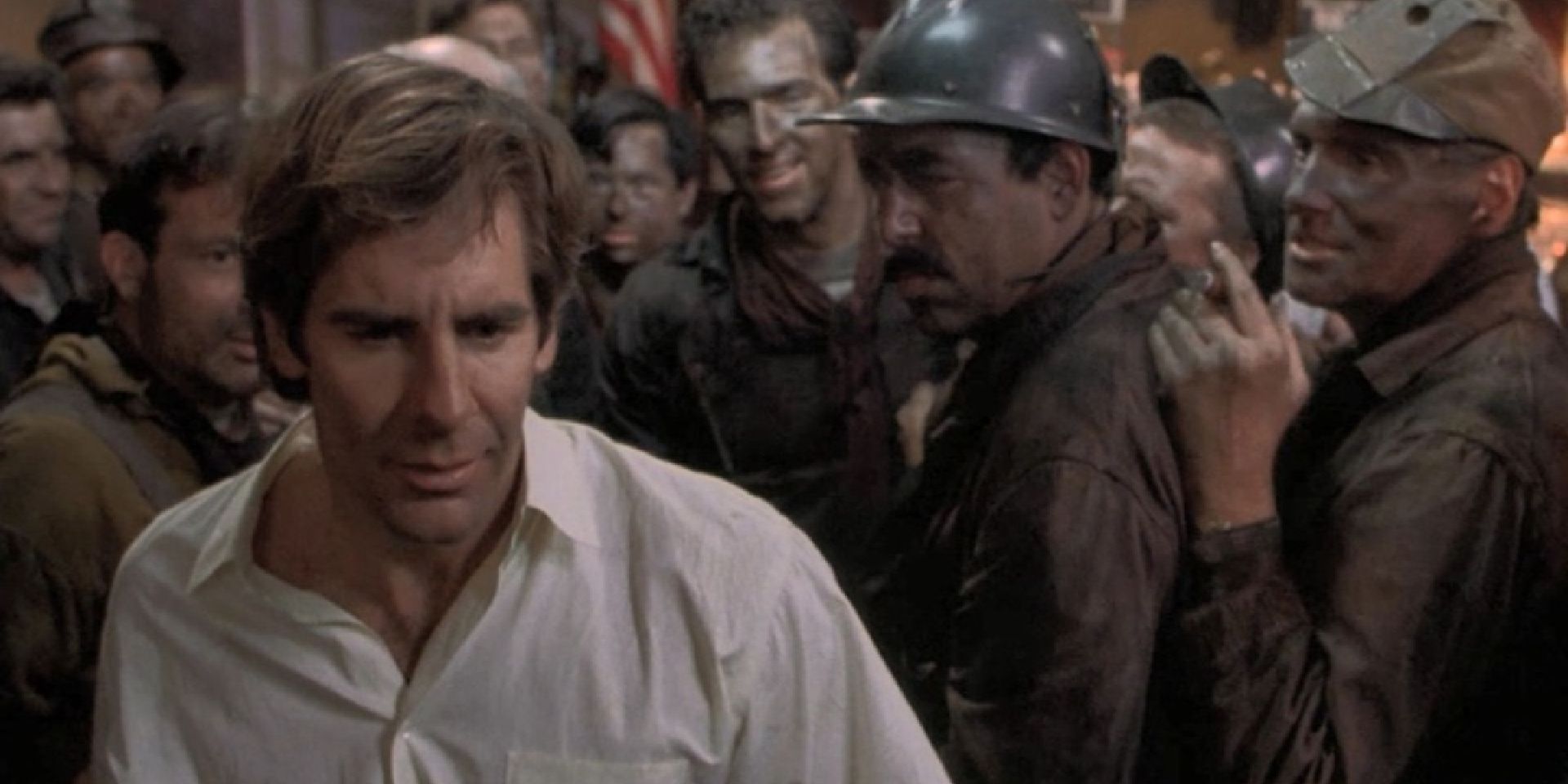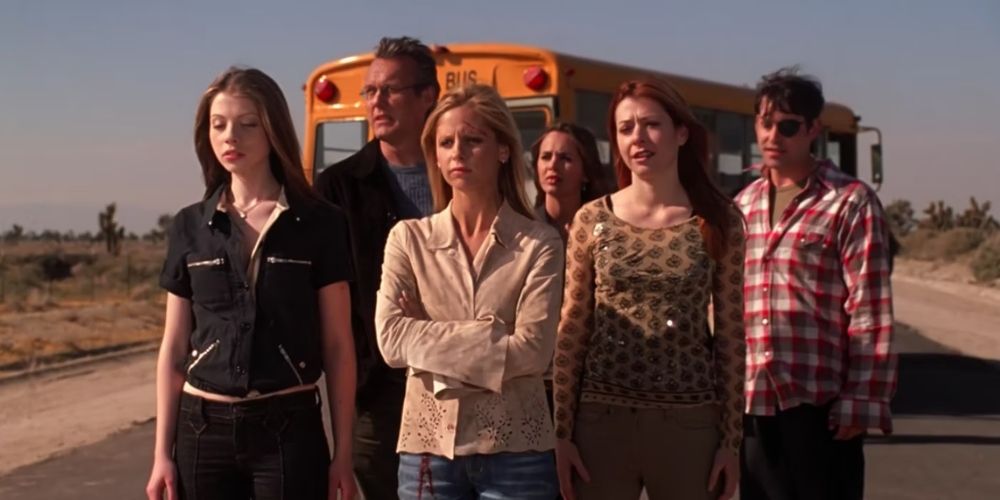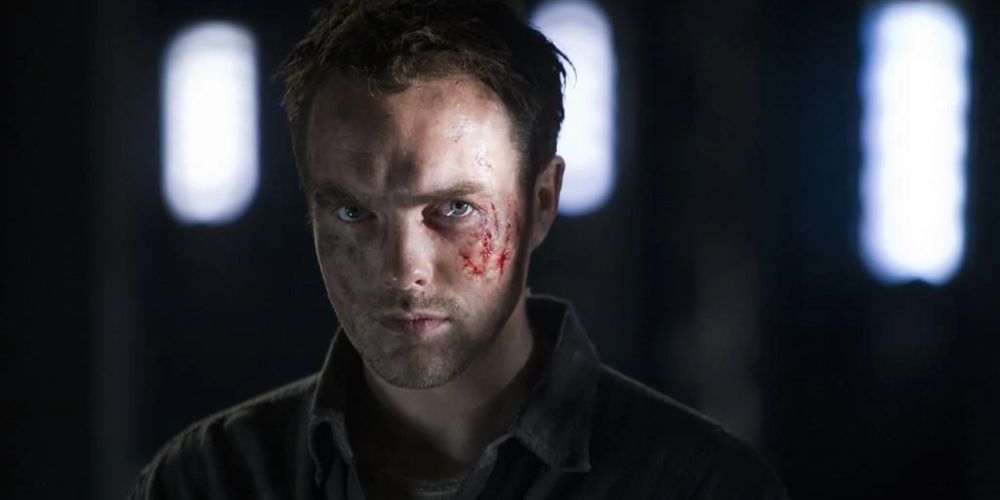The ending is an important part of a TV show, perhaps the most important part. It has to wrap up loose ends, answer the fundamental questions posed by the series, and be an entertaining piece of television in and of itself. However, not all finales hit the mark.
A common way for a TV show ending to fall short is by simply being nonsensical. Whether they fail to answer certain questions, introduce unexplained elements out of nowhere, or contradict what has come before, some conclusions simply do not add up. Some nonsensical TV show endings can't even be understood on a rewatch.
10 Two And A Half Men Sacrifices Logic For Cheap Shots
Two and a Half Men is by no means the most plot or logic-heavy of sitcoms. However, for much of its run, it does make sense on an episode-by-episode basis. Its finale, "Of Course He's Dead," lives on in infamy as an episode of television due to how nonsensical and mean-spirited it is.
After spending seasons accepting Charlie Harper's death as read, Two and a Half Men suddenly introduces the idea of him being alive and vengeful. The final shot is of Charlie (played by a double) knocking on the door, only for a falling piano to kill him. The camera cuts to writer Chuck Lorre saying "winning." It makes no sense and seems to exist so the showrunner can spite Charlie Sheen.
9 Life On Mars Never Fully Explains Its 1973
Alongside its historical police drama plot, Life on Mars has a significant running thread of Sam Tyler attempting to deduce the nature of the 1973 he finds himself in. The series hints at several possibilities, including time travel, that he's in a coma, or that he is dead. The finale sees Sam wake up from a coma and live in the regular world before he jumps off a roof to return to the past.
Through this, Life on Mars never actually explains what 1973 is. Sam wakes up from a coma but is definitively dead when he goes back a second time. The follow-up series, Ashes to Ashes, makes the finale even less clear by revealing it to be a form of purgatory. Thus, Sam waking up in the present day makes no sense.
8 Battlestar Galactica Suddenly Ends With Angels And God
For much of its run, Battlestar Galactica tells a story of the battle between the last surviving remnants of humanity and the Cylon androids. It's a unique but fairly conventional sci-fi setting for most of its run, with little in the way of fantastical or supernatural elements.
In the finale, however, Gaius Baltar reveals that he sees angels and that a power that might be god wants the two sides to live in peace. Starbuck is revealed to be one of these angels. She leads the humans to a new Earth where the same events begin to repeat, with the epilogue showing two Cylons discussing God's plan. Very little of this is explained and there's barely any foreshadowing, so even a rewatch doesn't help make this ending clear.
7 Reign Skips Over Decades Of History
Sudden cancellation can make endings nonsensical as the show can't explain a sudden plot twist or cliffhanger, but Reign goes one step further. It tells an altered version of the history of Mary, Queen of Scots, and her tangled affairs with the French, Scottish, and English thrones.
At the end of Reign's fourth season, the characters all look set to begin new plans and storylines, until it suddenly cuts to Mary awaiting her execution. Due to its sudden cancellation, Reign can't show any of the events leading up to Mary's execution, leaving decades of time unaccounted for.
6 Game Of Thrones Has The Lords Of Westeros Overturn Their Culture
The final season of Game of Thrones is infamous for its rushed, nonsensical storytelling. In particular, the resolution for the entire continent of Westeros makes little sense, as the Great Lords agree to the North becoming independent. Bran is even put on the throne to begin an electoral monarchy.
It's never explained why the fiercely competitive and distrusting Lords would simply give all of the Seven Kingdoms to the Starks, bar Tyrion commenting on the "best story." Despite ancestry being one of the most important things in Westeros, the Lords all accept an electoral monarchy with little question - only mocking the idea of giving peasants the vote.
5 Lost Confirms Some Theories While Contradicting Others
While many shows revolve around mysteries, few embrace them as fully as Lost. The show throws new questions, answers, and contradictory clues at the audience almost constantly, leaving viewers to question what's true and what isn't as they attempt to understand the nature of the island.
After several confusing seasons, the question is finally answered in the finale, "The End." The events are revealed to be a form of purgatory for many of the characters, preparing them for the afterlife. Although this has always been a popular theory for Lost, it contradicts huge mounds of evidence.
4 Torchwood: Miracle Day Never Gets To Pay Off Its Cliffhangers
As opposed to the standalone miniseries Children of Earth, Torchwood: Miracle Day attempts to set itself up as a serial story. Its finale sees the Torchwood crew defeat the Families and undo the Miracle, rendering everybody on Earth mortal once more. However, in its final moments, Rex proves himself suddenly immortal and the Families boast that they have another plan in motion.
These events make little sense with the information given, particularly as the Families used all of their influence to bring about the Miracle in the first place. Ultimately, the episode sets up a second season where things could be explained. Since Miracle Day hasn't had that second season yet, no amount of rewatching can help fans understand the finale.
3 Quantum Leap Has Unexplained Events And A Title Card
While Quantum Leap has the unusual premise of a man warping into the bodies of others, its individual events mostly make sense. This goes out the window in its final episode "Mirror Image," which simply revels in being as odd as possible. After a short journey to the day of his birth, Sam Beckett finds himself in a bar.
The bar is filled with people who resemble other people he's helped, but they claim not to be them. The bartender even hints that he may be God. After briefly meeting long-term ally Al, Sam continues to leap, and the audience sees a misspelled title card explaining that he never returns home. None of these events are explained, and the finale is an infamously disappointing one.
2 Buffy The Vampire Slayer Makes No Sense Without Watching Angel
Despite sharing a universe, Buffy the Vampire Slayer and Angel are largely separate shows after Angel's first season. This is until the series finale of Buffy the Vampire Slayer where the final threat itself is dispatched using means only explained in Angel.
After the First Evil's forces prove too much even for an entire army of Slayers, Spike suddenly begins to glow. The amulet Angel gave to him begins to burn and channels sunlight through into the Turok-Han, killing him and the First Evil's army. The amulet is only ever explained in Angel, coming as a complete deus ex machina in Buffy.
1 Primeval Just Misses A Coherent Ending
Primeval, a British drama about a clandestine government team fighting creatures from the past and future, almost ends its final episode on a note that makes sense. The team manage to destabilize the New Dawn anomaly, stopping it from consuming the entire world and rendering it a barren wasteland.
However, Primeval then conjures up another plot point in the episode's final moments. Protagonist Matt confronts a future version of himself, who tells him he has to "go back," before disappearing. How any of this happens, or what the future version of him means by 'back', is never explained. Primeval was canceled after its fifth season, so the story arc never comes to fruition and fans are left confused.

